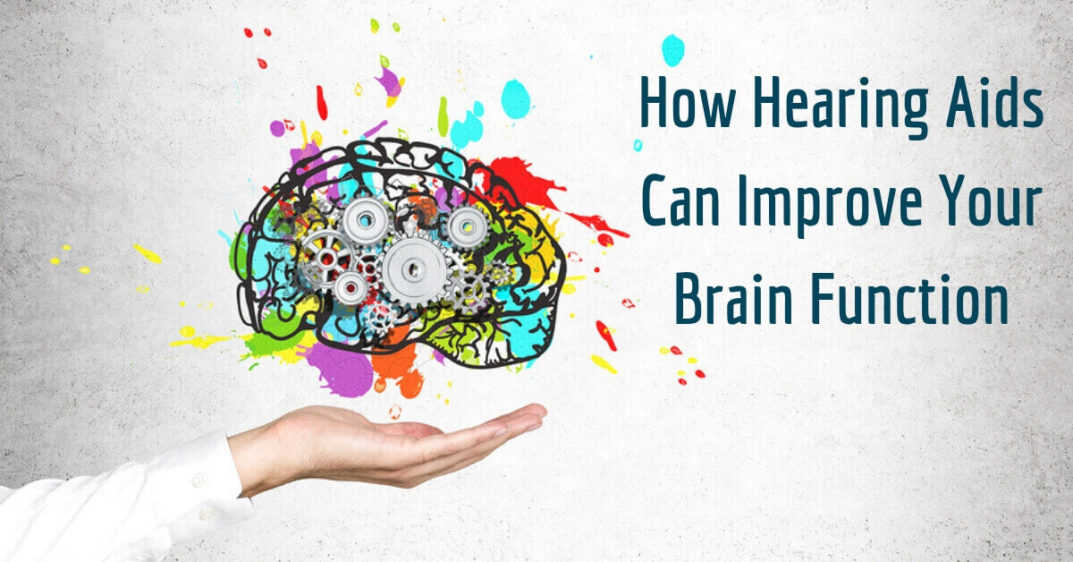It’s not just about being able to hear the doorbell or keep up with conversation at a dinner party. Recent studies suggest that your decision to treat–or not treat–your hearing loss could have a lasting effect on the way your brain functions.
The scientific community is learning more about the strong link between hearing loss, Alzheimer’s and other forms of dementia, with recent studies shedding light on the way untreated hearing loss accelerates cognitive decline and can even lead to the loss of brain tissue. But before you start to panic, know this: research also suggests that hearing aids can counteract the negative effects of hearing loss on the brain.
September is World Alzheimer’s Month, a time for raising awareness about a devastating disease that has touched countless lives. In honor of this important campaign, let’s take a look at how treating hearing loss can help to keep your brain healthy.
Studies link cognitive decline to hearing loss
There are a number of recent studies showing that untreated hearing loss in mid- to late-life carries an increased risk of cognitive decline and dementia.
Two studies out of Johns Hopkins revealed that older adults with hearing loss are significantly more likely to suffer from dementia than those who retain their hearing. And a separate Johns Hopkins study found a link between hearing loss and accelerated brain tissue loss. The research showed that for seniors with hearing loss, brain tissue loss occurs faster than it does for those with normal hearing.
Dr. Arthur Wingfield, Brandeis University Professor of Neuroscience, has been looking into cognitive aging, and the relationship between memory and hearing ability. He believes that unaddressed hearing loss does more than disrupt the listener’s ability to “hear” sounds accurately. It also seriously affects their higher-level cognitive function, by interfering with the sound-processing centers of their brains.Dr. Wingfield and his team found in one study that older adults with mild-to-moderate hearing loss performed poorer on cognitive tests than those of the same age who had good hearing.
They also used MRI to examine effect that hearing loss has on both brain activity and structure, and found that those with hearing loss had less gray matter in the auditory cortex, an area of the brain that is vital in supporting speech comprehension.
Wingfield has theorized that when sensory stimulation is reduced because of hearing loss, this results in brain ‘reorganization’ which has long-term consequences for cognitive health.
“Even if you have just a mild hearing loss that is not being treated, cognitive load increases significantly,” Wingfield said. “You have to put in so much effort just to perceive and understand what is being said that you divert resources away from storing what you have heard into your memory.”
How do hearing aids help?
We hear not only with our ears, but with our brain. Hearing loss can cause the connections in our brain to become reorganized, but hearing aids can help by preventing this from happening.
By providing the sound stimulation that would otherwise be missing–filling in the gaps–hearing aids can help to restore the proper organization of the ‘sound center’ of brain, so that it can react normally to the sound signals it receives.
Preventing compensatory brain organization by wearing hearing aids could be a vital way of preventing cognitive decline as we move through middle age. Dr. Wingfield suggests that annual hearing tests and early hearing loss screening programs for adults could make a significant impact when it comes to preventing the onset of dementia.
Hearing aids have also been shown to improve memory scores and make it easier to socialize and stay physically active, all of which are important counter-measures in the fight against Alzheimer’s and other types of dementia.
More hearing loss awareness is needed to prevent cognitive decline
Hearing loss is an incredibly common condition, especially in older adults. Although the loss of hearing can be detrimental to many areas of life if left untreated, the majority of people with this condition do not wear hearing aids–in fact, less than a quarter of those who could benefit from hearing devices actually wear them. According to recent surveys, one third of people between the ages of 65 and 74 have at least some hearing loss, and nearly half of those over 75 do. It takes, on average, seven years for someone with hearing loss to seek treatment, which is a significant period of cognitive decline that could be prevented. If you have a loved one with untreated hearing loss, taking time to talk to them about the benefits of hearing aids could make a serious difference in their long-term brain health.
Make an appointment with Comprehensive Ear and Hearing Today
There’s no time like the present to start treating your hearing loss and protecting your cognitive health. At Comprehensive Ear and Hearing we start with a thorough hearing exam and work closely with you to find the best hearing solution for your budget and lifestyle. We can’t wait to help you reconnect with your loved ones and hear all the sounds you’ve been missing. Request an appointment with one of our specialists today!


